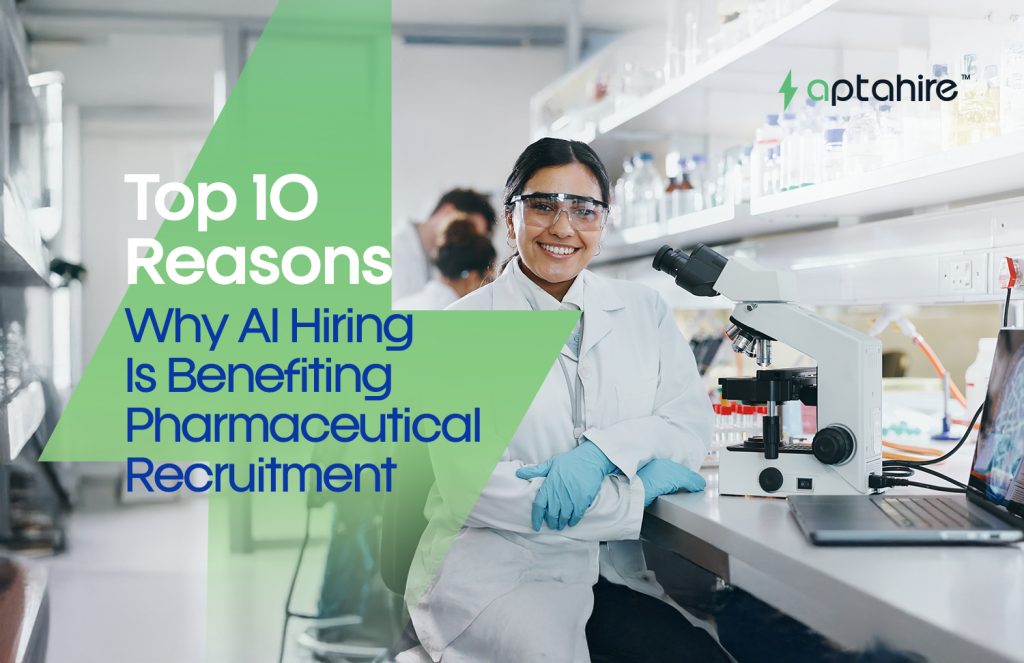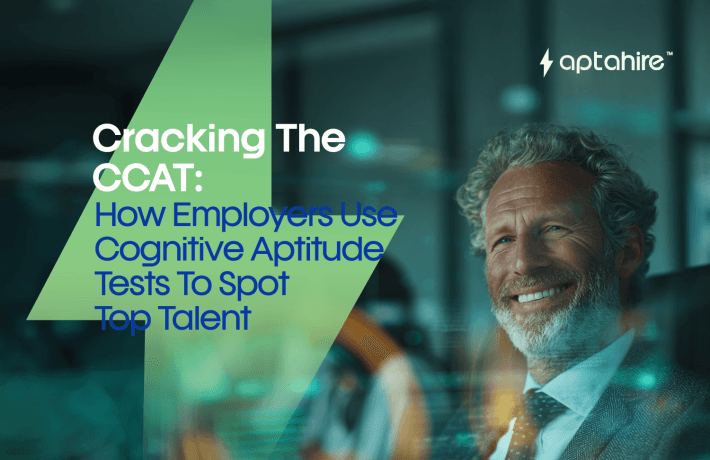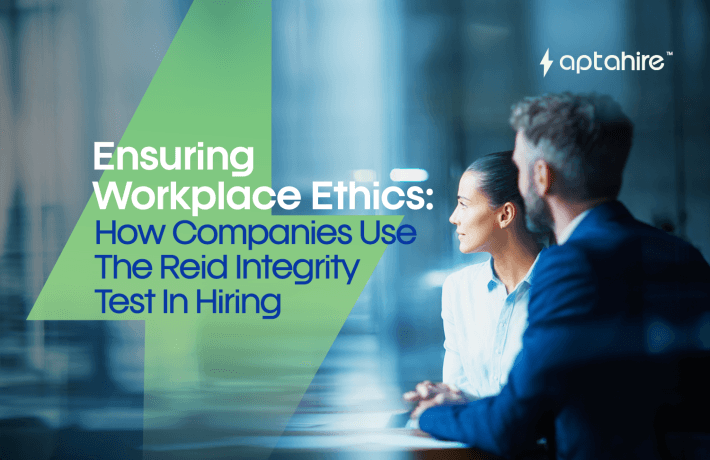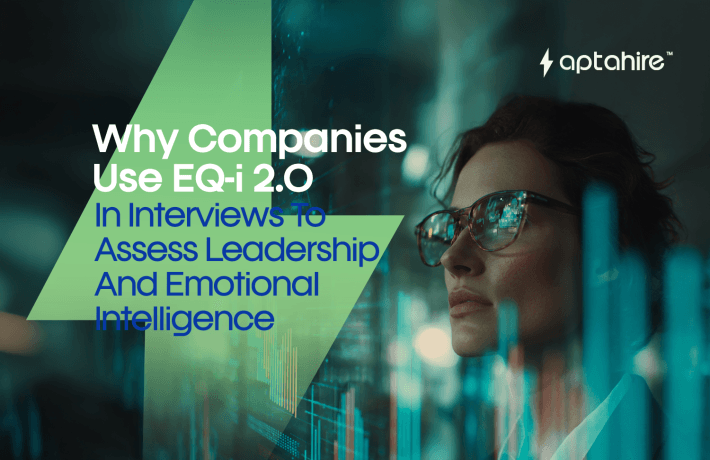Top 10 Reasons Why AI Hiring is Benefiting Pharmaceutical Recruitment

Introduction
The pharmaceutical industry is one of the most complex and fast-paced sectors globally. It operates at the intersection of science, healthcare, and regulatory compliance, and its recruitment demands are equally intricate. In such a competitive environment, traditional hiring methods often fall short in identifying the right talent at the right time. This is where Artificial Intelligence (AI) hiring platforms are making a significant impact.
AI-driven recruitment tools are not only streamlining the hiring process but also elevating the quality of hires across pharmaceutical roles, from R&D scientists to clinical project managers and regulatory affairs specialists. This blog delves deep into how AI hiring is transforming pharma recruitment and why companies leveraging it are staying ahead in the talent race.
1. Precision in Candidate Screening
AI hiring platforms can analyze thousands of resumes and applications within seconds, filtering out candidates who best match job descriptions using Natural Language Processing (NLP) and semantic matching algorithms. In the pharmaceutical space, where job roles require highly specific skill sets and certifications, this level of precision is crucial.
For instance, if a company is hiring a pharmacovigilance specialist, AI tools can accurately match candidates based on relevant experience, knowledge of regulatory systems like MedDRA or ICH, and familiarity with adverse event reporting systems. The manual effort and error margin significantly reduce.
2. Enhanced Candidate Quality Through Predictive Analytics
AI doesn’t just match resumes to job descriptions. It assesses behavioral traits, communication skills, domain knowledge, and even potential cultural fit through video interviews and psychometric assessments. Predictive analytics forecast a candidate’s long-term success based on historical data and performance indicators.
For pharmaceutical recruiters, this ensures that a potential hire for a clinical trial coordinator role, for example, will not only have the right qualifications but also the resilience and attention to detail needed to thrive in high-pressure, regulated environments.
3. Reduced Time-to-Hire for Critical Roles
In the pharmaceutical industry, certain roles are time-sensitive, especially during drug development phases or when scaling operations post-approval. AI automates initial screenings, schedules interviews, and even handles pre-employment assessments, reducing time-to-hire by as much as 60% in some organizations.
By accelerating recruitment cycles, pharmaceutical firms can avoid costly project delays. This becomes even more critical in scenarios like vaccine development, where every day counts.
4. Bias-Free and Objective Decision-Making
Traditional hiring methods are susceptible to unconscious bias, leading to skewed candidate selection. AI tools, when trained on unbiased datasets and audited for fairness, help pharmaceutical companies recruit based on merit and competencies.
For example, when hiring for a Quality Assurance Manager in a biopharma firm, AI tools can ensure that selection is based solely on validated experience and not influenced by factors like gender, age, or alma mater.
5. Intelligent Sourcing Through Talent Mapping
AI hiring platforms leverage large datasets to build comprehensive talent maps. These tools can predict where the best candidates are likely to be found, what skills are trending, and which competitors are hiring similar roles.
This is incredibly valuable in pharma, where niche skills like CRISPR, biosimilars, or biostatistics expertise may be in limited supply. Intelligent sourcing helps HR teams stay proactive rather than reactive in talent acquisition.
6. Compliance and Documentation Automation
Hiring in pharma involves extensive documentation, especially around background verification, credential validation, and regulatory compliance. AI tools can automatically validate qualifications, check references, and ensure all hiring steps comply with global regulations such as FDA, EMA, or HIPAA standards.
Automated audit trails ensure transparency, and documentation can be retrieved instantly during compliance audits or internal reviews.
7. Scalable Hiring for Global Operations
Many pharmaceutical companies operate across multiple geographies. AI-powered recruitment solutions can manage multi-language screening, local labor law compliance, and cultural nuances in interviews, making global hiring seamless.
This is especially beneficial when hiring for roles in clinical operations or regulatory affairs across regions like North America, Europe, and Asia-Pacific. AI platforms unify the recruitment strategy while customizing execution at the local level.
8. Integration with HR Tech Ecosystems
Modern pharmaceutical companies rely heavily on HR tech stacks that include Learning Management Systems (LMS), Enterprise Resource Planning (ERP), and Applicant Tracking Systems (ATS). AI hiring tools integrate smoothly with these systems to offer a unified view of talent analytics.
This enables pharma HR leaders to not only hire but also track employee performance, training needs, and career progression, helping create a future-ready workforce.
9. Real-Time Candidate Engagement
AI chatbots and automated messaging systems enhance the candidate experience by providing real-time updates, answering FAQs, and keeping the communication loop active. This is essential in pharmaceutical recruitment, where high-caliber candidates often have multiple offers and expect prompt engagement.
Maintaining communication and transparency builds trust and enhances the employer brand, which is a competitive differentiator in the life sciences industry.
10. Cost-Effective Recruitment
While AI hiring platforms require initial investment, they reduce the long-term cost of recruitment through automation, reduced turnover, and better quality of hires. For pharmaceutical companies, this translates to fewer failed hires, lower onboarding costs, and improved ROI on talent acquisition.
Moreover, reduced dependency on third-party agencies and optimized internal hiring processes free up budgets that can be invested in employee development and retention.
Interesting Stats and Trends
- According to a Deloitte report, 33% of pharma companies have already adopted AI-based recruitment tools, with another 44% in the pilot phase.
- Pharmaceutical jobs, particularly in regulatory affairs and R&D, show a 70% faster fill rate when AI tools are employed.
- Companies using AI for pharma hiring report a 40% increase in employee retention in the first 12 months.
Tips for Pharma Recruiters Adopting AI
- Begin with roles that are high-volume or high-skill-gap to maximize initial ROI.
- Choose AI platforms with proven case studies in healthcare and pharma sectors.
- Ensure data privacy compliance, especially when handling sensitive candidate information.
- Regularly audit AI models for bias and update them with relevant pharmaceutical hiring data.
- Train HR teams to interpret AI insights alongside human intuition for balanced decision-making.
Final Thoughts
AI hiring is not just a futuristic concept but a practical, proven asset in pharmaceutical recruitment today. By combining data-driven intelligence with the human touch, companies can attract, assess, and retain top-tier talent more effectively.
As the industry continues to evolve with personalized medicine, biotech innovations, and global health challenges, talent will be the differentiating factor. Embracing AI in recruitment ensures pharmaceutical companies are equipped with the right minds to drive the next wave of innovation.
Whether you’re a recruiter, HR leader, or pharma executive, understanding the strategic advantage of AI hiring is no longer optional. It is essential for building an agile, resilient, and world-class workforce.
FAQs
1. How is AI improving the quality of hires in the pharmaceutical industry?
AI leverages predictive analytics, machine learning models, and pattern recognition to assess candidates beyond résumés. By analyzing historical hiring data, performance metrics, and competency benchmarks, AI identifies candidates who not only meet role requirements but also align with company culture and long-term success predictors. This leads to improved retention and job performance, especially in roles demanding scientific precision and regulatory awareness.
2. Can AI hiring tools ensure compliance with pharmaceutical industry regulations?
Yes, advanced AI platforms can be configured to comply with industry-specific hiring standards like GxP (Good Practice), FDA guidelines, and data privacy laws such as HIPAA and GDPR. AI ensures that each step of the recruitment process, from application tracking to candidate evaluation, maintains audit trails and adheres to strict documentation and compliance protocols.
3. Is AI capable of identifying niche skillsets required for R&D or clinical trial roles?
Absolutely. AI hiring systems can parse CVs and application materials for highly specialized keywords, certifications, research experience, and publications. These platforms can match candidates to highly technical roles such as pharmacovigilance specialists, clinical research associates, or biostatisticians based on complex datasets and scientific domain relevance.
4. How does AI reduce bias in pharmaceutical recruitment?
By anonymizing candidate data (removing identifiers like name, gender, and location), AI minimizes unconscious human bias during screening. It evaluates applicants based solely on qualifications, skills, and experience. While bias can exist in data models, responsible AI tools undergo constant auditing and refinement to ensure fairness and inclusivity, especially critical in global pharmaceutical hiring.
5. Can AI recruitment be used at scale for pharmaceutical manufacturing and sales roles?
Yes. AI platforms excel at high-volume hiring needs such as filling manufacturing floor positions, sales reps, or regulatory support staff. AI automates resume screening, schedules interviews, and uses chatbot assessments to handle thousands of applicants simultaneously while maintaining quality, making it ideal for companies expanding production or launching new drug portfolios across regions



